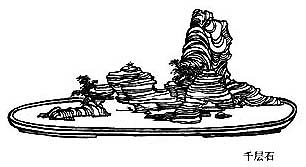論
語
Lun Yu 
 – The Analects of Confucius
– The Analects of Confucius
The Master discusses with his disciples and unveil his preoccupations with society. Tr. Legge (en), Lau (en) and Couvreur (fr).
Lunyu XIII. 24. (341)
How, to judge of a man from the likings and dislikings of others, we must know the characteristics of those others.
Tsze-kung asked, saying, "What do you say of a man who is loved by all the people of his neighborhood?" The Master replied, "We may not for that accord our approval of him." "And what do you say of him who is hated by all the people of his neighborhood?" The Master said, "We may not for that conclude that he is bad. It is better than either of these cases that the good in the neighborhood love him, and the bad hate him."
Legge XIII.24.
Tzu-kung asked, '"All in the village like him." What do you think of that?'
The Master said, 'That is not enough.'
'"All in the village dislike him." What do you think of that?'
The Master said, 'That is not enough either. "Those in his village who are good like him and those who are bad dislike him." That would be better.'
Lau [13:24]
Tzeu koung demanda ce qu'il fallait penser d'un homme qui est aimé de tous les habitants de son pays. Le Maître répondit : « Cela ne prouve rien encore. » Tzeu koung reprit : « Que faut-il penser d'un homme en butte à la haine de tous les habitants de son pays ? » Le Maître répondit : « Cela ne prouve rien encore. Il vaudrait mieux qu'il soit aimé dans son pays de tous les hommes bons, et haï de tous les hommes mauvais. »
Couvreur XIII.24.

The Analects of Confucius – Lun Yu XIII. 24. (341) – Chinese on/off – Français/English
Alias the Lunyu, the Lun Yü, the Analects, les Entretiens du maître avec ses disciples.
The Book of Odes, The Analects, Great Learning, Doctrine of the Mean, Three-characters book, The Book of Changes, The Way and its Power, 300 Tang Poems, The Art of War, Thirty-Six Strategies
Welcome, help, notes, introduction, table.
Index – Contact – Top























